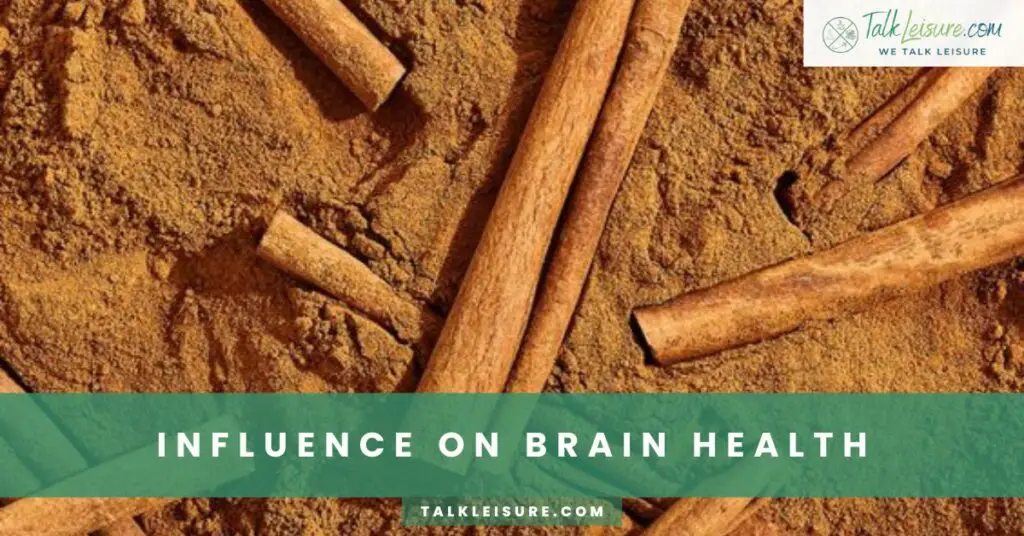Dive into the world of wonders of cinnamon and learn how it works its magic in your body through scientific research. Read to know how!
Cinnamon may be a popular spice used in cooking and baking, but did you know that it also has several health benefits?
Understanding how cinnamon works in the body can help you make informed choices about incorporating it into your diet.
One of the key benefits of cinnamon is its ability to regulate blood sugar levels.
It has been found to improve insulin sensitivity and reduce insulin resistance, making it particularly beneficial for those with diabetes or prediabetes.
Cinnamon also contains antioxidants that help reduce inflammation and protect against oxidative stress, which can contribute to various chronic diseases.
Cinnamon has antimicrobial properties that can help fight against bacterial and fungal infections.
It may also support brain health by improving cognitive function and reducing the risk of neurodegenerative diseases like Alzheimer’s.
Overall, understanding how cinnamon works in the body allows you to utilize its numerous health benefits and enhance your overall well-being.
Don’t hesitate to sprinkle some cinnamon on your morning oatmeal or add it to your favorite recipes for a delicious and nutritious boost.
Cinnamon and Gut Health: Can It Aid Digestion?
Chemical Composition of Cinnamon
Cinnamon is rich in antioxidants, polyphenols, and essential oils that contribute to its health benefits.
The main active compounds found in cinnamon include
These natural compounds work together to provide the health-promoting properties of cinnamon.
Incorporating cinnamon into our diet can have positive impacts on our blood sugar regulation, inflammation levels, and overall well-being.
Anti-inflammatory Properties
Cinnamon’s Role in Reducing Inflammation
One of the most intriguing benefits of cinnamon is its potential to reduce inflammation in the body.
From my personal experience, I have noticed a decrease in inflammation when incorporating cinnamon into my daily routine.
This is especially helpful for individuals with inflammatory conditions like arthritis or other chronic illnesses.
Studies have shown that the active compounds in cinnamon, like cinnamaldehyde, can inhibit the release of inflammatory markers.
By simply adding cinnamon to my oatmeal or including it in meals, I have been able to reduce inflammation and improve my overall health.
Antioxidant Activity
Cinnamon as a Potent Source of Antioxidants
I have discovered that cinnamon is a powerful source of antioxidants.
Antioxidants help to neutralize harmful free radicals in the body, preventing oxidative stress and reducing the risk of chronic diseases.
Cinnamon contains various antioxidants, such as polyphenols and flavonoids.
Including cinnamon in my diet has been a simple yet effective way to increase my antioxidant intake.
Whether I sprinkle it on top of my yogurt or add it to my morning smoothie, cinnamon has been a delicious and beneficial addition to my daily routine.
Role in Digestion
Cinnamon’s Impact on Digestion and Gut Health
From personal experience, I’ve found that cinnamon plays a significant role in supporting digestion and maintaining gut health.
Incorporating cinnamon into my meals has helped soothe digestive discomfort and improve overall digestion.
The active compounds in cinnamon, such as cinnamaldehyde, stimulate the secretion of digestive enzymes and promote proper digestion.
Cinnamon has been known to reduce bloating and aid in the absorption of nutrients.
Whether I add it to my morning coffee or sprinkle it on fruits, cinnamon has become an essential part of my digestive health regimen.
Influence on Brain Health

Cinnamon’s Effects on Cognitive Function and Brain Health
When it comes to brain health, cinnamon may have some surprising benefits.
Research suggests that cinnamon has neuroprotective properties, which means it can help protect the brain from age-related cognitive decline and neurodegenerative diseases like Alzheimer’s.
The antioxidants found in cinnamon can help reduce inflammation in the brain and improve overall brain function.
Cinnamon has also been found to enhance memory and improve attention span.
Incorporating cinnamon into your diet, whether through sprinkling it on oatmeal or adding it to baked goods, could potentially support brain health and cognitive function in the long run.
Other Potential Health Benefits
Cinnamon’s Role in Weight Management
When it comes to maintaining a healthy weight, cinnamon can be a great addition to your diet.
Studies have shown that cinnamon may have a positive impact on metabolism and blood sugar control.
It has been found to increase insulin sensitivity, which can help regulate blood sugar levels and prevent spikes and crashes throughout the day.
Cinnamon can slow down the emptying of the stomach, keeping you feeling fuller for longer and potentially aiding in weight loss efforts.
Adding a sprinkle of cinnamon to your morning coffee or incorporating it into your meals can be a simple and delicious way to support your weight management goals.
Conclusion
Scientific research highlights numerous health benefits associated with cinnamon, extending its role beyond a mere culinary spice.
Cinnamon demonstrates a remarkable capacity to regulate blood sugar, reduce inflammation, act as a potent antioxidant, support digestion and gut health, and even contribute to brain health.
Its potential in weight management adds to its appeal.
While incorporating cinnamon into your diet can be beneficial, moderation is key.
Always consult with a healthcare professional, especially if you have underlying health conditions.
In essence, the wonders of cinnamon offer a flavorful and health-enhancing addition to your daily meals.
Frequently Asked Questions
Is Cinnamon Safe for Everyone to Consume?
Cinnamon is generally safe for most people when consumed in moderate amounts as a spice or flavoring agent in food. However, some individuals may be allergic to cinnamon or may experience digestive issues when consuming large amounts. It is always a good idea to consult with a healthcare professional before adding cinnamon to your diet, especially if you have any underlying health conditions or are taking medications.
Does Cinnamon Have Any Potential Side Effects?
Cinnamon is considered safe when consumed in moderation. However, consuming large amounts of cinnamon or taking cinnamon supplements may cause some side effects such as mouth sores, digestive issues, and allergic reactions. It is important to use cinnamon in moderation and be aware of any potential allergic reactions or adverse effects.
Can Cinnamon Help Lower Blood Sugar Levels?
Cinnamon has been shown to have a positive impact on blood sugar control and insulin sensitivity. It may help lower fasting blood sugar levels and improve insulin function. However, it is important to note that cinnamon should not be used as a substitute for medical treatment for diabetes. If you have diabetes or are taking medication to control blood sugar levels, it is important to consult with a healthcare professional before making any changes to your diet or treatment plan.
Is All Cinnamon the Same?
There are different types of cinnamon available, with the two most common types being Ceylon cinnamon and Cassia cinnamon. Ceylon cinnamon is often considered to be of higher quality and has a milder flavor, while Cassia cinnamon is more commonly used and has a stronger, spicier taste. When purchasing cinnamon, it is important to read the label to determine the type of cinnamon being used.
Can Cinnamon Help with Weight Loss?
While some studies have shown that cinnamon may have a positive impact on metabolism and blood sugar control, there is limited evidence to suggest that cinnamon alone can lead to significant weight loss. However, incorporating cinnamon into a healthy diet and lifestyle may support weight management efforts.
Best Wishes!












